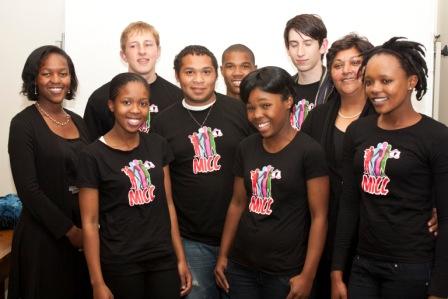
Eight Grahamstown High School learners participated in this year’s Model International Criminal Court simulation in Krzy?owa, Poland, shared their experiences at the function held recently.
“The main focus of the project is to show learners how international law, in theory and practise work,” said a teacher from Mary Waters High School, Faith Coetzee, who accompanied all the learners on the trip.
The MICC is a simulation of trials that that are fashioned according to the International Criminal Court (ICC). The aim of this project, started by the Polish organisations Kreisau-Initiative e.V and the foundation Krzy?owa for Mutual Understanding in Europe, is to teach students core principles of the ICC while introducing them to the plight of human rights in the world.
All learners are trained to take on the various roles necessary for a court trial and are given human rights cases in which they apply what they’ve learnt. This year’s MICC attracted students from Uganda, Afghanistan, Germany and South Africa, among others.
“Each of us has a lot of locked-in potential,” said Professor Jobst Bodenstein, director of Rhodes University Law Clinic, “very often, sadly, people don’t reach that potential”.
Prof Bodenstein encouraged the learners to take up more opportunities such as the MICC to engage with others. Eight schools in Grahamstown were initially invited to participate in the simulation but of those only Mary Water High School and Graeme College responded.
“I started questioning: was it all worth it?” said Mr Myron Nelson from Graeme College, as he explained the long journey to Poland, “we found out later, the adventure was about to begin”.
Hilarious anecdotes were provided, such as the learners getting lost on their first day in Europe and trying to work as a team on their first trip overseas. “It was a great experience, knowing that you’re defending someone,” said Hlumisa Mazomba from Graeme College, who got the opportunity to act as a defendant during the trials.
Thandokuhle Qakamfana from Mary Waters High recounted a memorable experience as a prosecuter, describing the difficulty of providing a verdict for case of a radio station host who was being tried for being instrumental in encouraging the Hutu killings of the Tutsi in the 1994 Rwandan genocide.
Aphiwe Nqowapi also from Mary Waters, was at first uncomfortable as a judge as it was difficult to come up with a verdict, but later embraced the position.
Graeme College learners Danyel Hartley and Robert Rousseau were assigned as the press team were they trained on how to report, and managed to put a newspaper with no prior experience. The two schools managed to successfully represent the country by interacting with other cultures under the banner of humanitarian law. “We all felt international,” said Nqowapi.
The learners and their teachers thank the various people that made their journey possible.
The trip was made possible with assistance from the European Union, the Rhodes University Law Clinic and the Grahamstown community.
The Rhodes University Law Clinic is one of the foremost clinics in the country. It aims primarily to provide free legal services to indigent people and provides students with hands-on practical experience and education. Every Rhodes law student is required to at least spend one semester in the Clinic.
By Wilhelmina Maboja
Picture by Ettione Ferreira
